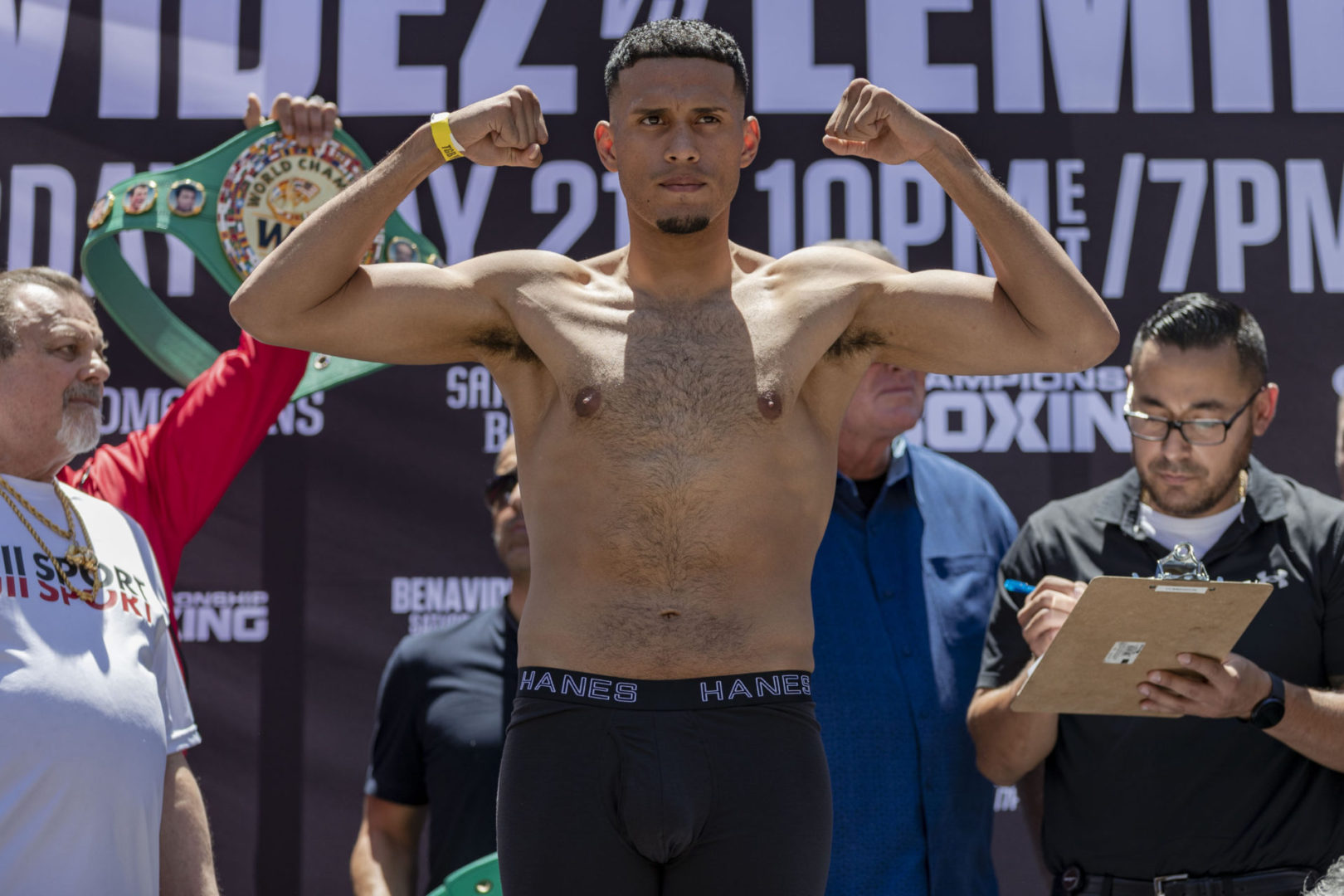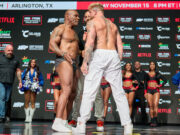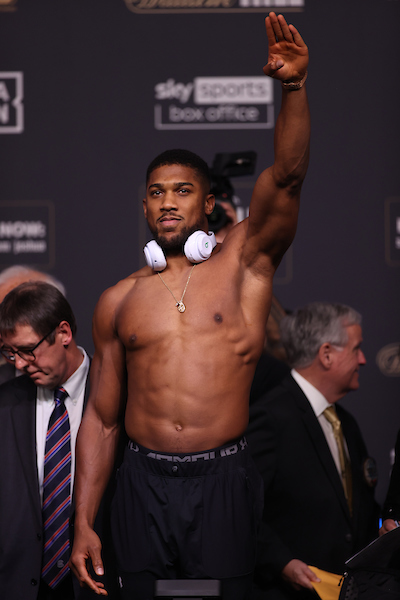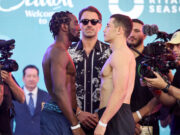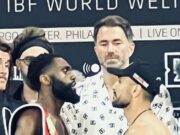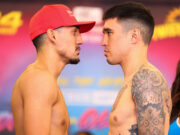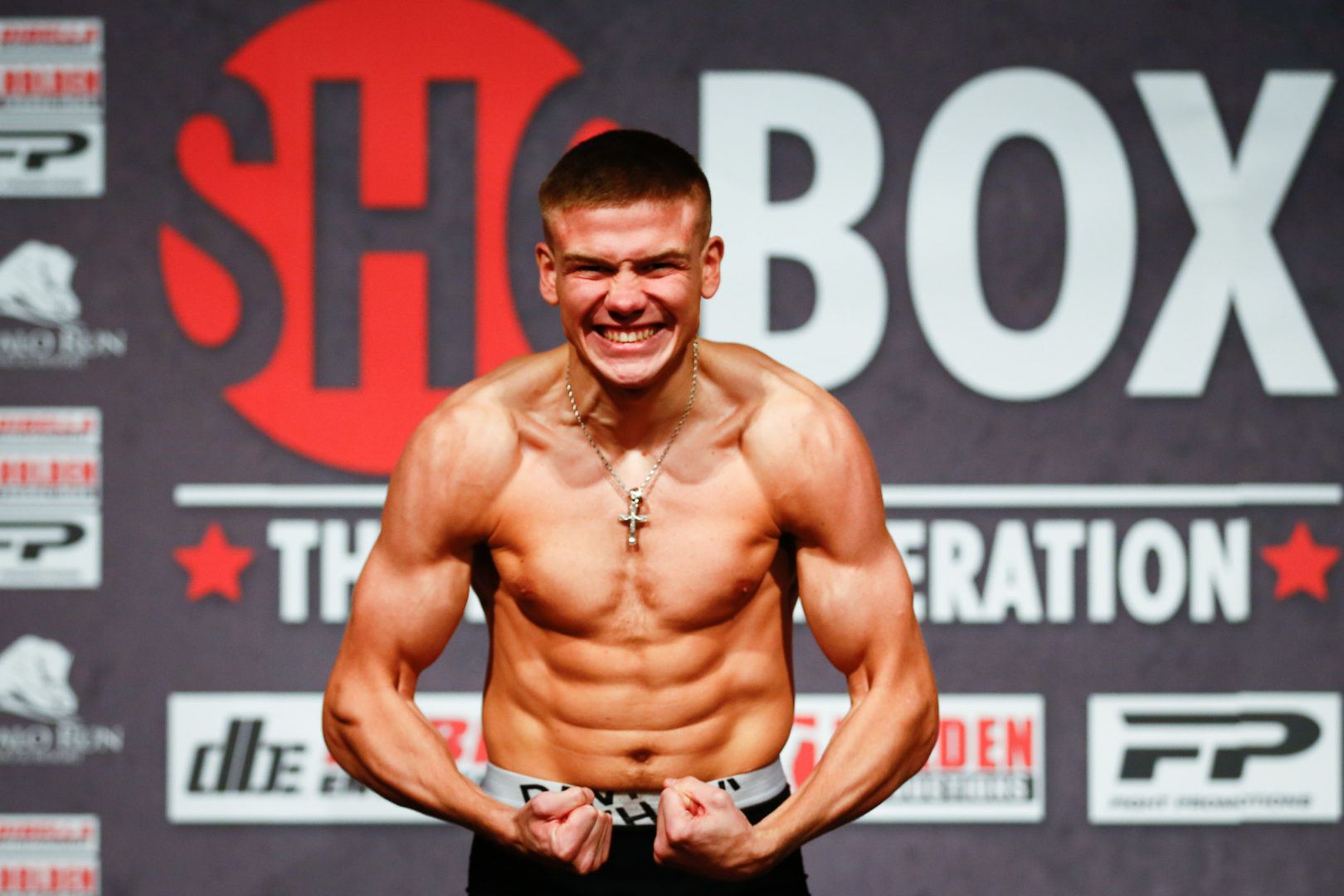By Bart Barry-
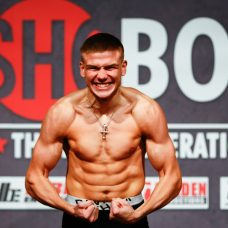
Saturday on DAZN, boxing’s now-essential network, the quarterfinals of the World Boxing Super Series super lightweight tournament happened in New Orleans. Belarusian Ivan “The Beast” Baranchyk (19-0, 12 KOs) walloped the sparkle out Sweden’s Anthony Yigit (21-1-1, 7 KOs) in the first mainevent. And in the second New Orleans’ Regis “Rougarou” Prograis (23-0, 19 KOs) decisioned unanimously England’s Terry Flanagan (33-2, 13 KOs). It was puncher-versus-survivor, both matches, and if that pitting didn’t make the best fights the WBSS has delivered thus far, they were still widely better than what American premium-cable swill they usurped.
Prograis doesn’t hit nearly hard enough for the posing he does. One suspects the origin of this posturing bent of his can be found in his record and generally soft stuff he’s built his resume with. He knows exactly how to throw the blastoff counter and admire its results but is less adept at following the counter with a few more punches. At no point in Saturday’s match was he better balanced and prepared for what came next than after he dropped Flanagan in round 8. He had the pose just right and the strut to the neutral corner down, too, much more than what finishing tactics one’d need to cut the lights of a former titlist.
Prograis has oodles of what the kids call swag – something like a young Yuriorkis Gamboa, without the Olympic gold medal to justify it. He is the fighting pride of transplanted New Orleans, a group generally longer on fight than pride. He’s also the number-one seed in a tournament bound to reveal whatever weaknesses he has, even if they don’t unravel him, and deserves a nod of approval for testing his fistic skills in single-elimination rather than some documentarian’s imagination in an episode of HBO’s defunct “2 Days” series.
Prograis will be 30 years-old round about the time of his semifinal match, which is to write he’s in the permanent period of his career, the time when any loudly publicized alterations to his fighting style will be cosmetic (he’s a lopsided-decision loss away from an Abel Sanchez Mexican-style makeover [though, while we’re on the subject, will any boxing figure’s profile go flaccider absent HBO stimulus than Abel’s?], where he’ll learn not to compromise his punches with head movement).
A prototypical U.K. prizefighter, full of heart and chin as he is bereft of power, Flanagan was an excellent opening exam for Prograis. Flanagan knew some tricks. While he did nothing to raise a referee’s suspicions he intended to elbow Prograis if given the chance, he sure brought his elbows back high and wide on the inside for a guy ostensibly defending himself from counters. He dipped low before clinches, too, the better to butt his assailant. Which is to write, he made Prograis earn victory the right way – by fighting.
Few are the men – no current practitioner save Naoya Inoue springs to mind – who have talent enough to win at the championship level and remain virgin pristine in tactic. Great fighters are dirty fighters, men who in their most challenged moments draw on experiential reserves of every trick employed against them by veteran fighters who often didn’t know and always didn’t care about the potential of the men across from them.
To wit, here’s an anecdote a young prospect recounted some years ago about sparring with Yori Boy Campas:
I knew he was going to hit me in the liver if he could. I’m bigger than him, so I don’t need to get too close to him. His arms don’t look that long. We’re two minutes in and he catches me there and nods. Just to tell me he could do it anytime he wanted. I was like, that’s pretty sneaky. He sees me get ready and throws the hook, really big. Except it doesn’t do anything because his glove is open and he’s hitting me on my elbow. But he’s not hitting my elbow. He’s, like, cupping it. Shoving it out of the way. And he’s still on his right side. Then right behind it come the knuckles. It was tap-slam.
You don’t pay the rent for long with hurting other men unless you’re a supernatural talent, which Campas wasn’t, or you master the patterns of your body and others’. Campas won his 107th professional fight in March, how easily we forget, and will never make any historian’s Top 50 list, true, but upon exiting the crucible of a boxing ring with him no man ever did not admire him, in large part because Campas knew, knows, every single way one man may hurt another with gloved fists. Flanagan is no Campas but surely taught Prograis some things Saturday, things Prograis will call upon unexpectedly someday if he’s humble enough to be wise, which he mightn’t be.
If Prograis challenges himself consistently for the next five years his defense is such he’ll find himself exactly where Flanagan was in round 8, eventually, and if Prograis was conscious of anything more than his own aesthetics after he dropped Flanagan, which he mightn’t’ve been, he’ll draw upon the experience of his own frustration in being unable to foreclose on a man like Flanagan who pays the mortgage but sporadically.
Another reason to evangelize for the World Boxing Super Series, and the concept of tournament boxing in general: There aren’t but a handful of gainfully employed matchmakers anymore worth a ha’penny – there are easily a dozen matchmakers worth quite a bit more than that, but the current marketplace has overvalued signature-destination storytelling, or whatever be the PBC’s equivalent, more than earnest competition – and so, select eight men in any division overlooked by American networks, and then let competition, talent and chance do the rest. Throw in a visionary broadcasting platform and some cool white lights and keep the tournament moving.
Whoever emerges with the Muhammad Ali Trophy (named after Muhammad Ali, we learned Saturday) is henceforth a signature-destination fighter for aficionados; if you’re less excited for Usyk-Bellew than you were for Jacobs-Derevyanchenko you’re a publicist, aspiring or actual, not an aficionado. Tournaments value competition over narrative (the 2009 narrative went: Andre Ward, a spoiled American gold medalist, will be stapled to the canvas by Mikkel Kessler in round 1 of the Super Six), achievement over character development.
Bart Barry can be reached via Twitter @bartbarry



